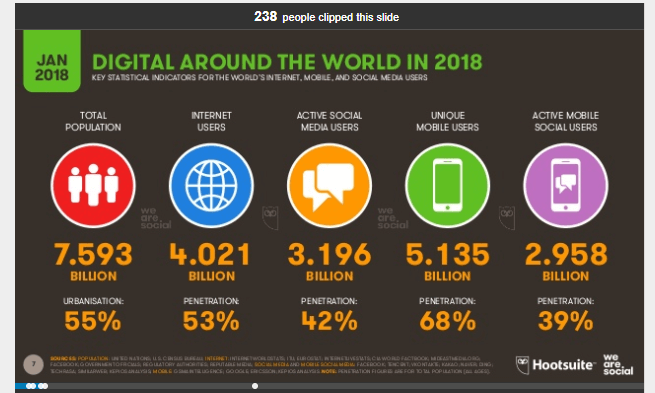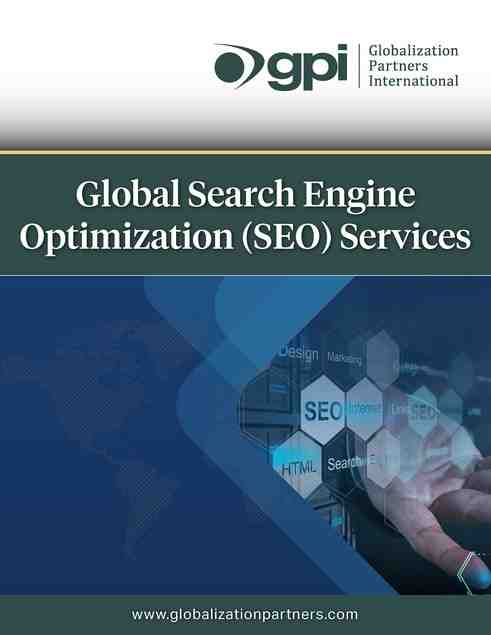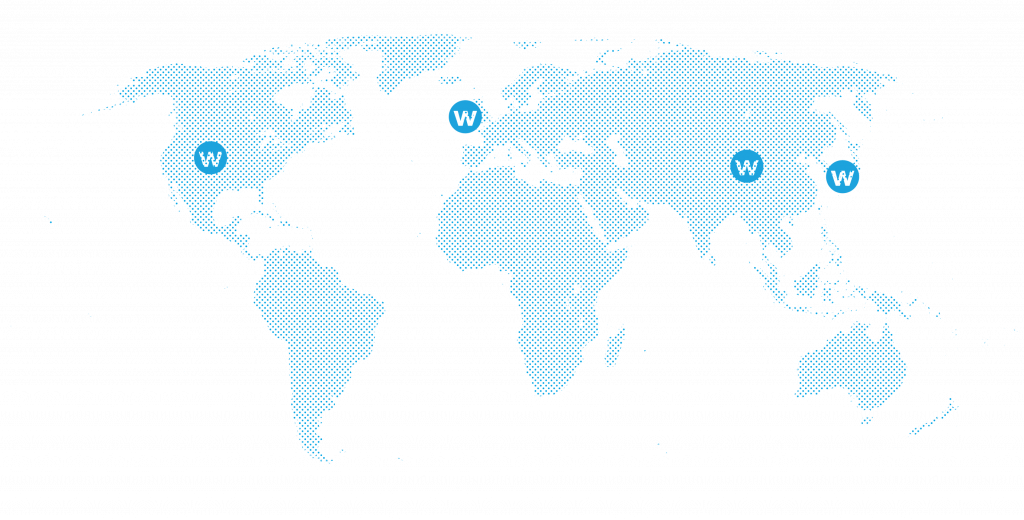For many companies, having global websites is one of the best ways to reach a wider audience to grow their business.
Once web design services become available, even an individual can start a business by targeting foreign countries through a global network.
The thing is, though, that having a global network does not make you successful in other countries.
Also, following the best SEO practices on a regular basis does not make your international site competitive for all the targeted countries. While it seems that there is an unlimited amount of information about global SEO available, it is a fact that many of them are outdated or inaccurate.
In this article, we will cover some of the key areas of global SEO.
What Are The Differences Between International & Regular SEO?

The best standard SEO methods are definitely the foundation of global SEO as search engine algorithms are very similar, if not identical, country to country.
I would say that international SEO is based on common SEO knowledge and skills.
So, what makes global SEO different? The main reasons are:
When paying attention to each site, you should keep an eye on the overall performance when you have international websites. Otherwise, your local marketplace may be competing with each other or in the worst case, it may not be produced at all.
For example, your website for Mexico should not be higher than or should not appear in the Spanish search results, if you have a different site for Spain.
If you misuse canonical tags or hreflang tags, specific sites may not be identified by search engines or create a duplicate index.
Should I Go Global? And Where Is My Market?

Before embarking on global SEO, it is always a good idea to review some market reports, accounts, and even your site data to help with the decision.
This is especially important if you are unsure of the opportunities available in different countries or have any satisfaction with your superiors.
Here are some sources of information you can use to determine or rank the countries / markets you are following:
One Global Site Or Multiple Website?

If the market is big enough for you to invest in, definitely go to a specific location in each targeted country.
Not only for SEO reasons, but also to provide a better user experience for local visitors, it is always good to have a specific site for each of the countries you are targeting. It also allows you to use different designs and objects in each location, if needed.
However, this may not be a viable option for you, at least not in the beginning. In that case, you will have a lingua franca in each of the target countries.
It is normal to do this because you may want to test the water first before diving deep.
Fortunately, we can use hreflang tags to tell Google the language and country of origin of each site.
Which Domain To Have: ccTLD or gTLD?

If you asked me this question in 2008, my answer was always to follow ccTLD. The fact is that not everyone can get this choice for a variety of reasons.
Fortunately, it will not affect your SEO as search engines have come a long way. We now have other options that we can use geotarget sites, especially Google.
Note that some search engines like Baidu still prefer networks with local ccTLD.
Also, people outside the United States tend to click on websites with local TLDs by browsing pages with .com or other general TLDs.
Does Hosting Location Matter?

Web hosting site has been one of the key symbols of global SEO related to geotargeting.
However, it is not necessary now that we have other ways to accurately identify the target market for your site search engines and CDNs managed regionally.
Still, the host site has a huge impact on page speed. Make sure your site can be accessed quickly to the target countries.
How Should I Go About Alternative Geotargeting?
Perhaps, geotargeting is one of the simplest practices where many websites make a mistake when site owners move from ccTLDs and local market hosting.
There are several ways you can geotarget access to your web pages and pages. Here are some common ways:
Side note: Google now generates search results based on the location of the radio regardless of the local type used by Google.
For example, you used to search Google.com for various Google U.K. search results. (google.co.uk) or Google Australia (google.com.au) even when searching for the same keyword.
But now, you will get the same results in all three Google sites unless you search in three different countries.
Google Or Not Google?
While Google is still the most widely used search engine in the world, in some countries, there are localized search engines that are more popular than Google.
If the country you are targeting is one of the following, you will need to pay close attention to keep up with these local sites and further refinement work.
Do I Need to Care About Other Search Engines?
While Google is still the most widely used search engine in the world, in some countries, there are very popular local search engines.
By ignoring these search engines, you are ignoring the great business opportunities in those countries.
If the country you are targeting is one of the following, you will need to pay close attention to keep up with these local sites and further refinement work.
Of course, even in Google’s most popular countries, ignoring other popular search engines including Bing limits your business potential.
Translation And Localization
Your international website should not be a duplicate and duplicate version of your native site in different languages, although I see this happening on many websites.
Yes, translating and placing web site information is one of the first steps. But then, you need to promote the pages of the local audience in each country messages and provide the overall user experience of the site.
A site with a well-known material that works well inside the U.S. market may not work well in Asia or South America and may require additional content editing and performance improvement.
For these reasons, it is important to conduct keyword research for each target country based on an understanding of local interests and the terms used.
Keep in mind that although translators or translation agencies provide accurately translated documents, they may not use words similar to those used by people to search for information.
Do I Need To Build Links For Each Website?
Even when you have one global site with all country or language sites in the same domain, you still want to build links to each site even when you already have multiple links pointing to your site.
Because websites in your country are more likely to have links from external sites in the same country.
In order for your international websites to compete in every country, you need a link between a particular country and the websites.
For example, you want to get links on Indian websites or you are targeting India on your India website. Having links to local websites is a good indication of search engines that your website is designed and relevant to that country.
What Else Should I Consider Before I Go Global?
One of the biggest challenges most companies with global websites face, even the global Fortune 100 companies, is local resources.
No one has the luxury of having unlimited resources in every targeted country, this can be a big problem especially since SEO is not a one-time project but requires constant effort.
The key is to plan the work and the allocation of responsibilities between the central office and the local offices such as:
Currently, you may not have any offices or agents in other countries, or any resources available at local offices.
In these cases, you need to consider whether you want to rent one or more external sources.
Conclusion and Takeaway
Global SEO is built on top of standard SEO.
A modified website does not always produce a optimized global site even after translation, and there are several key elements in both technical and content optimization efforts that need to be considered.
In fact, adding multiple languages and content creates a lot of work due to copy content and geotargeting issues as well as link building.
A global website is a great way to expand your market reach, but it also requires additional resources and budget to improve global SEO.
You do not have to target many languages and countries.
Examine your business opportunities using your data as well as market reports of trusted authorities to determine where you want to appear in search results.
Image courtesy: Sozina Ksenia / Shutterstock

